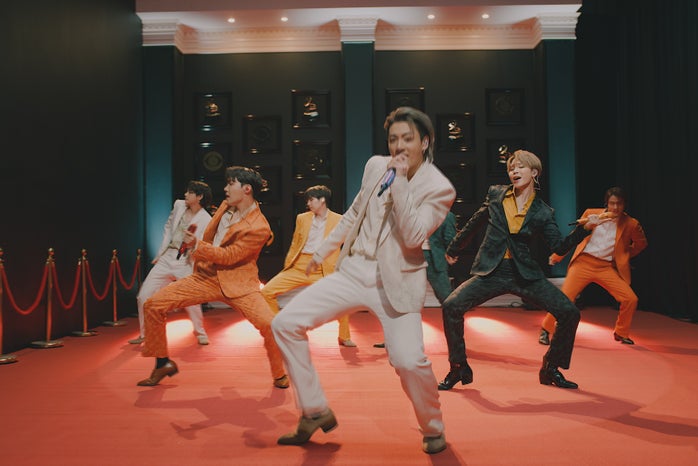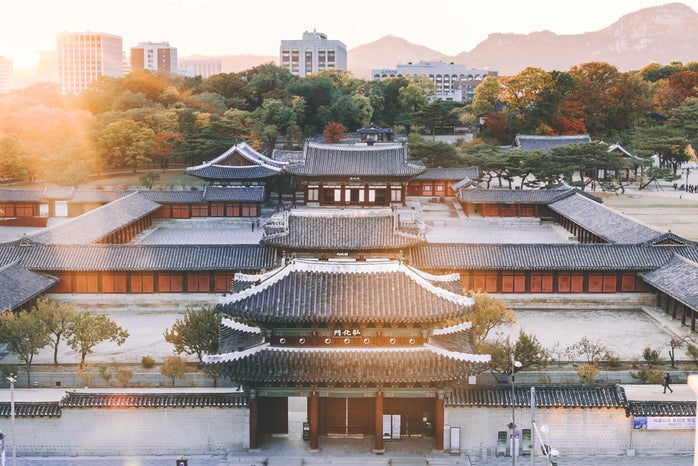If you’re a K-pop stan that’s active on social media, there’s a good chance you’ve seen those TikToks that compare someone’s taste “then,” usually featuring some of everyone’s favorite white boys of the month like Dylan O’ Brien or Tom Holland (both of whom remain top-tier white boys of the month) to someone’s taste “now,” which will comprise of male K-pop idols or K-drama actors. These kinds of edits have crossed my page more than a few times and most of them have thousands of likes. Or you may have heard someone say something along the lines of how their taste has changed and now they’re attracted to Asian men. In both situations, there is the troubling implication that through K-pop, someone’s taste has come to comprise entirely of conventionally attractive Asian men. Every time I encounter this, it feels wrong. Having thought about it, I think I’ve figured out why.

K-pop is an increasingly global phenomenon, having broken into mainstream pop culture, particularly over the last few years. There is so much to love about the music and the community. As someone who discovered K-pop during the height of the pandemic, I can vouch for how much comfort and warmth as well as entertainment it can bring to someone’s life.
However, it would be foolish to pretend that the industry doesn’t have a dark side when it comes to the way it tightly controls and markets the image of its idols. K-pop as an industry cultivates a sense of familiarity between fans and idols, whether it be through a constant stream of content, livestreams, social media use or variety show appearances. There is a sense of entitlement to idols’ availability and effort. This familiarity, as far as I know, is exclusive to the K-pop industry, which creates the conditions for the fetishization of K-pop idols.
In an article for Forbes, Janice Gassam Asare, a professor and anti-racism educator, defines fetishization as “the act of making someone an object of sexual desire based on some aspect of their identity” and even cites the harmful racial fetishization of Asians. While there is a long history of Asian women being fetishized, the rise of K-pop has led to the unfamiliar territory of the fetishization of Asian men. Where Asian and Asian American men have long been desexualized in mainstream Western media, K-pop idols are suddenly the opposite. They are all extremely attractive and talented and fans become easily attached to these idols. This, along with the aforementioned type of marketing commonplace in the K-pop industry, leads to fans, often unconsciously, romanticizing idols as well as Korean culture.
This is not to say that you shouldn’t be attracted to K-pop idols at all or that any attraction is inherently harmful. They are, after all, attractive people. I would be lying if I said I haven’t been mesmerized by Bang Chan from Stray Kids during every performance of “Thunderous” this era. However, it’s important to distinguish between finding an idol attractive simply because you think they are attractive and finding idols attractive because you generalize their features to all East Asian men and believe them to be attractive by virtue of being Asian. Having a “preference” for East Asian men is not as flattering as it appears. It is dehumanizing and dangerous to base perceptions of a community spanning multiple countries on the appearances of a few men, chosen for their public roles as performers at least partly for their good looks. The very existence of the position of “visual” in K-pop groups indicates the significant consideration of physical appearance in the industry; idols are the exception, not the norm. Fans should remember to put their critical thinking caps on when it comes to the consumption of any kind of entertainment, but particularly when it comes to an industry that is defined by a certain culture. As Asare concludes in her Forbes article, “Fetishization serves to continue problematic notions about different groups of people and makes it easier to treat individuals in a way that aligns with our specific biases.”
A beautiful consequence of the spread of K-pop is the global awareness of Korean culture, which has cultivated appreciation and interest in the country and its language. I know I love learning about Korean traditions and seeing them incorporated into the music or performances. Nevertheless, it is important to distinguish the line between appreciation and fetishization. In K-pop, the music is up for consumption, not Korean culture or the idols. In educating ourselves, we make the community safer and ensure healthier relationships between idols and fans. Do the work to make sure you’re not contributing to the problem. Then, we can all drool over our biases together in peace.
References
Asare, J. G. (2021, February 16). What Is Fetishization And How Does It Contribute To Racism? Forbes. https://www.forbes.com/sites/janicegassam/2021/02/07/what-is-fetishization-and-how-does-it-contribute-to-racism/?sh=282f18a56e39




